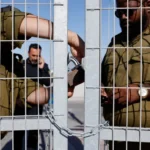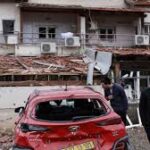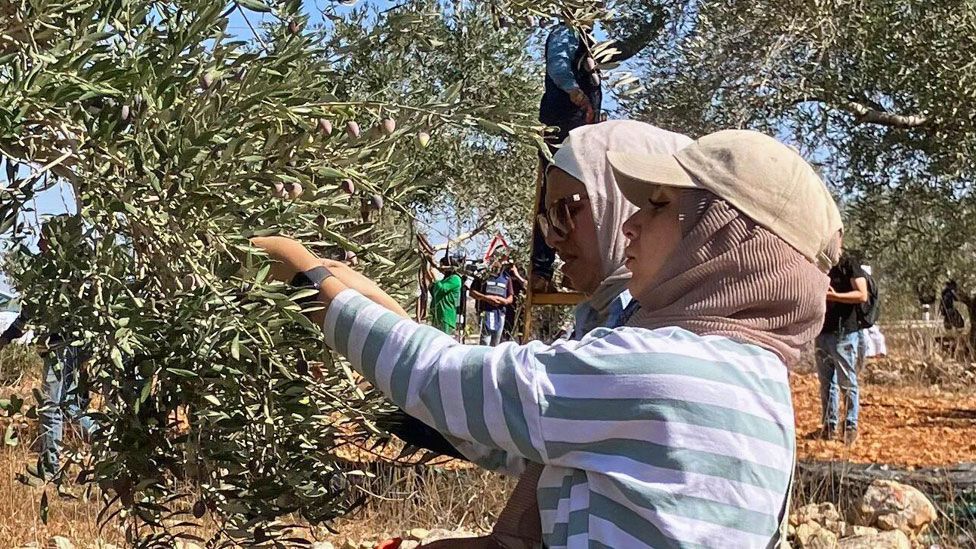The annual olive harvest in the occupied West Bank has become increasingly dangerous for Palestinian families. It’s an essential tradition and a significant source of family income. Recent incidents, among them the shooting of a 59-year-old Palestinian woman in the back and repeated attacks on farmers, have starkly underlined the rising threats from Israeli settlers and security forces.
Tragedy in Faqqua: A Fatal Day in the Olive Grove
Late last month, 59-year-old Hanan Abu Salameh came to collect the olives on her family’s land near the village of Faqqua, which she has been doing for years. Moments after starting, Hanan was shot dead by an Israeli soldier as she lay bleeding near her olive trees. This happened even after the family had coordinated with Israeli Defense Forces (IDF) earlier, said Fares and husband Hossam, recounting how the soldier fired several shots from where other members of the family ran to hide.
The IDF claims that an investigation is underway, but Hanan’s family is not very optimistic about receiving justice. However, this is common, and olive farmers increasingly face dangers when harvesting in West Bank areas.
Deteriorating Situation for Palestinian Farmers
The olive harvest is one of the most historically maintained practices and a significant source of income for most Palestinians in the West Bank. Still, it is becoming more and more precarious due to increasing tensions and acts of violence. According to the UN, Palestinian farmers regularly face organised attacks by Israeli settlers trying to interrupt the harvest. The confrontations frequently take the forms of cut or burned trees, physical attacks, and blockage of access to the land area by Israeli security forces.
Omar Tanatara, a farmer from the village of Umm Safa, described how last year’s harvest was severely limited by interference. “At one point, the army threw the olives we’d already gathered on the ground and ordered us to leave,” he said. Villagers have had to act quickly this season to gather what they can before another wave of disruption.
More:Israel’s Reckless War Games: Is Lebanon Next on the Chopping Block?
Violence Even With Activist Support
With Israeli and international activists on their side, Palestinian farmers are still taking grave risks. Israeli peace activist Zuraya Hadad was recently attacked by a masked man armed with a large stick while assisting with olive picking; Israeli soldiers happened to witness the attack, but their response was to tell the perpetrator to move along. The assailant was not arrested.
Although wounded, Zuraya shares the anger of the rest. “Even when we come to help, it doesn’t ensure that the Palestinians will reap their olives,” she said. According to her, settlers take the olives, wreck the trees, or allow the crops to rot.
Economic Impact of a Fragile Harvest
The olive harvest is the most crucial source of revenue for the Palestinian economy. Olives are the West Bank’s most important agricultural product, and in a good year, the olive sector can contribute more than $70 million to the economy. Violence and restrictions drastically reduced last year’s income, and it does not look any brighter this year. Abd al-Rahman Khalifa, a factory owner, acknowledged that fewer farmers could bring in their crops because of the increasing threats.
Khalifa’s brother-in-law in Lubban – an area near an Israeli settlement – was attacked while harvesting his olives, leaving him with broken arms. “We don’t have big companies or industries like others,” Khalifa said. “Our economy relies on the olive tree, much like the Gulf relies on oil.”
The Battle for Land and Heritage
This fight over olive groves translates to a more significant issue: a battle for land and heritage within the West Bank. For generations, olive trees have been the symbol of the deep relationship that Palestinians have towards their land – a bond being increasingly threatened behind the groves of Umm Safa towers, an illegal settler outpost operated by the condemned-by-Western-governments settler Zvi Bar Yosef.
Olive press in Umm Safa has returned to work this year, and farmers wait with bated breath for the miracle of their harvest to turn into precious olive oil, often called “liquid gold.” However, the atmosphere is filled with uncertainty and threats as political tensions outweigh the harvest.
Escalating Settler Violence Amid Political Backing
This encourages some settlers to use bolder ways against Palestinian farmers as far-right Israeli ministers back them up lately. National Security Minister Itamar Ben-Gvir recently defended the settlers for taking their ideas of land ownership into action by claiming their “God-given” right over land, which has increasingly increased confrontations. Ben-Gvir has been despised for interrupting the olive harvests of Palestinians and has intensified this division further.
Many Palestinians consider their olive trees not just an economic asset but also a symbol and sign of culture and identity. The pressures from such escalating threats to their land and livelihood significantly strain that connection during times of high uncertainty and conflict.















